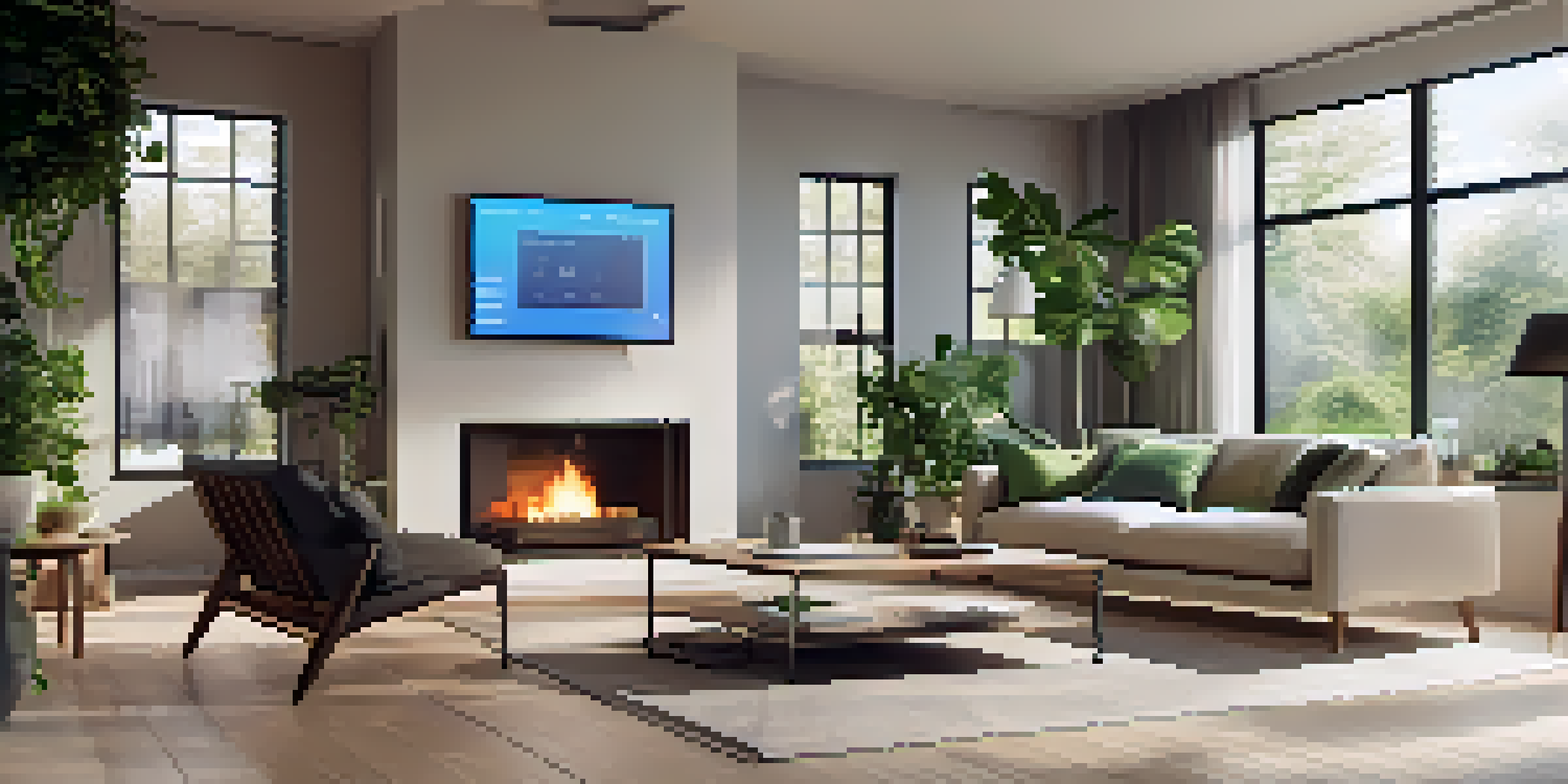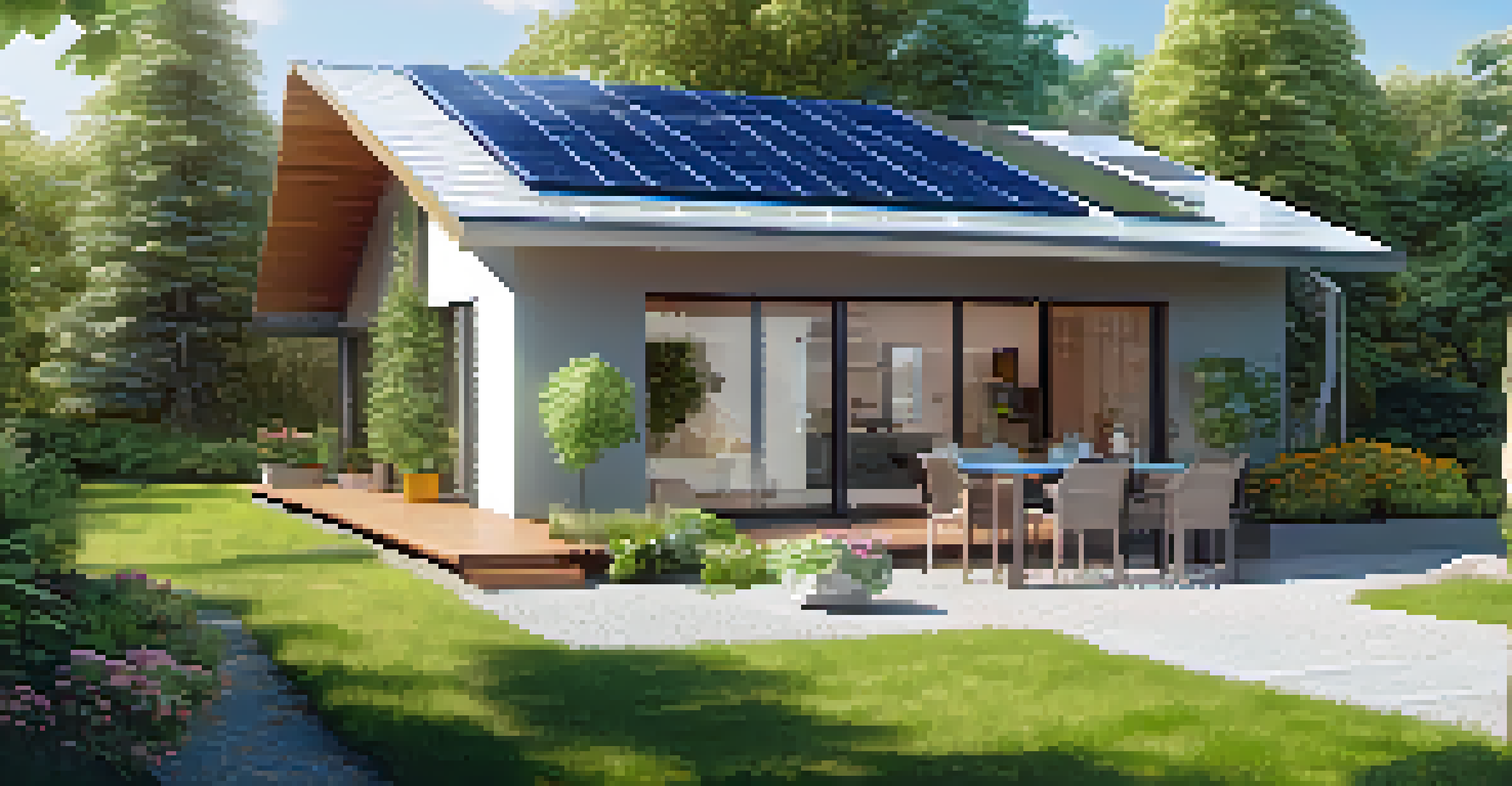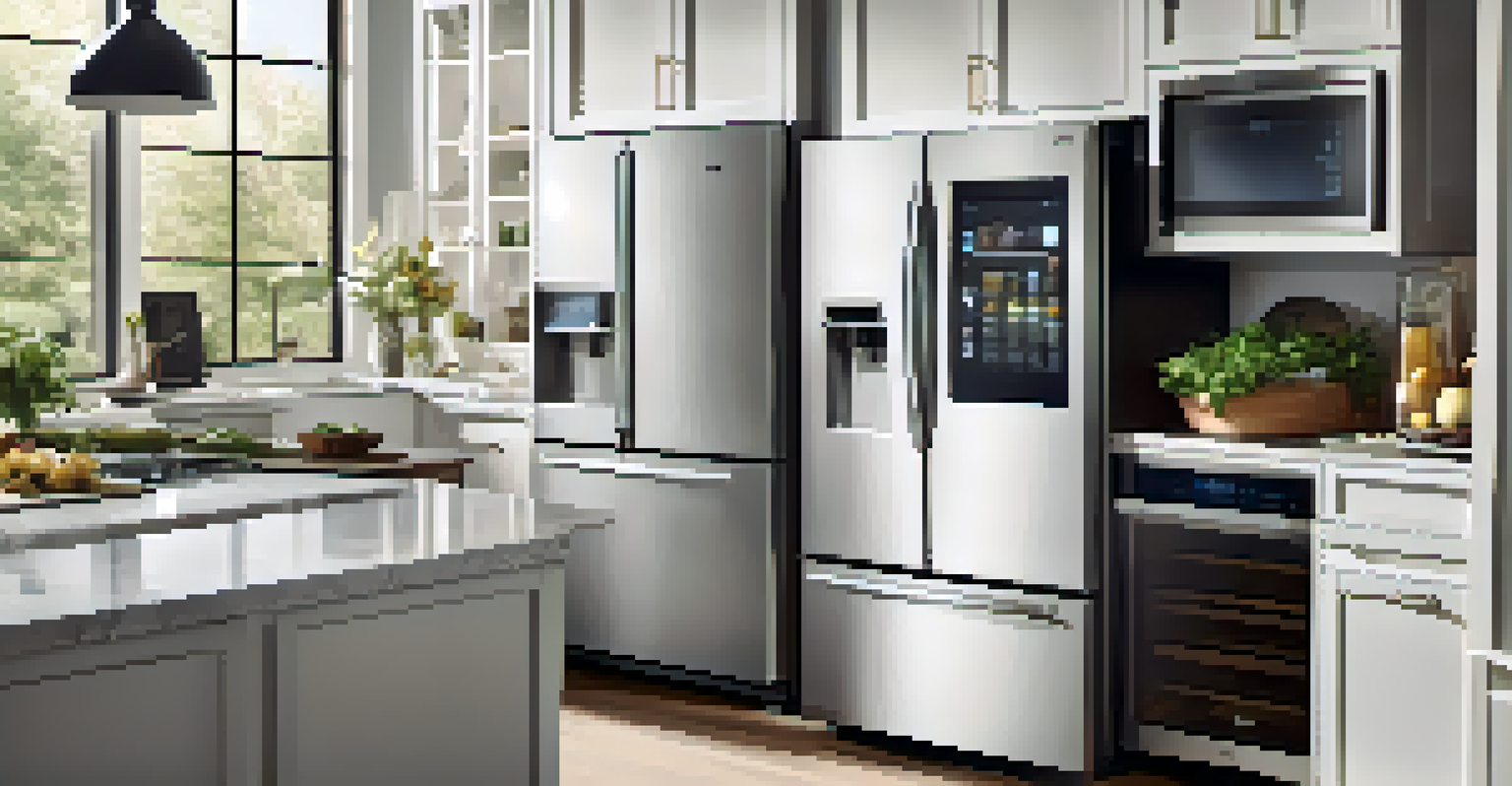Home Automation and Renewable Energy: A Perfect Match

Understanding Home Automation and Its Benefits
Home automation involves the use of technology to control various systems within your home, such as lighting, heating, and security. Imagine being able to adjust your thermostat from your phone while you're at work—this level of convenience makes life simpler and more efficient. Moreover, it enhances your comfort level and can even lead to energy savings.
The greatest danger in times of turbulence is not the turbulence; it is to act with yesterday's logic.
By automating tasks, homeowners can create personalized settings that suit their daily routines. For instance, smart lighting can be programmed to turn on as the sun sets, reducing the need for artificial light and saving electricity. This not only makes your home more comfortable but also contributes to a greener planet.
With the increasing availability of smart devices, integrating home automation into your daily life is becoming more accessible. From smart speakers to advanced security systems, there’s a gadget for nearly every household need. These innovations are not just about luxury; they are about making sustainable living easier for everyone.
The Role of Renewable Energy in Modern Homes
Renewable energy refers to energy sources that are naturally replenished, such as solar, wind, and hydroelectric power. One of the most popular forms for residential use is solar energy, which harnesses sunlight to generate electricity. This not only reduces reliance on fossil fuels but can also lead to significant savings on utility bills.

As more homeowners seek sustainable solutions, renewable energy systems have become increasingly affordable and efficient. For example, the cost of solar panels has dropped dramatically over the past decade, making them a viable option for many. This shift not only benefits the environment but also empowers homeowners to take control of their energy consumption.
Home Automation Enhances Comfort
Home automation simplifies daily routines, allowing homeowners to control systems like lighting and heating for greater convenience and energy efficiency.
Incorporating renewable energy into your home can also enhance the effectiveness of home automation systems. For instance, smart energy management systems can optimize energy use based on real-time solar production. This means you can maximize your savings while minimizing waste, creating a truly efficient living space.
How Automation Enhances Renewable Energy Use
Home automation complements renewable energy by optimizing energy consumption. For instance, smart thermostats can learn your habits and adjust heating or cooling based on when you’re home, ensuring you’re not using energy unnecessarily. This is particularly beneficial when paired with solar energy, as it helps you use energy when it's most abundant.
The future is green energy, sustainability, renewable energy.
Imagine a system that monitors weather patterns and adjusts your energy usage accordingly. If a sunny afternoon is forecasted, your smart devices could run power-hungry appliances, like dishwashers or washing machines, during that time. This not only utilizes renewable energy effectively but also reduces your overall energy costs.
Furthermore, integrating home automation with renewable sources allows for real-time monitoring. Homeowners can track energy production and consumption through apps, gaining insights into their usage patterns. This awareness encourages more responsible energy habits, aligning with a commitment to sustainability.
Smart Appliances: The Future of Efficient Living
Smart appliances are a key component of home automation, designed to work seamlessly with your energy management systems. These devices can communicate with each other, adjusting their operation based on energy availability and efficiency. For example, a smart refrigerator could reduce power consumption when solar energy production is low.
Many new appliances come equipped with energy-saving features that can be controlled remotely. You can preheat your oven while you're on your way home or start your laundry when energy prices drop. This level of control not only enhances convenience but also promotes energy efficiency, especially when powered by renewable sources.
Renewable Energy Reduces Costs
Utilizing renewable energy sources, such as solar power, can lead to significant savings on utility bills while promoting sustainable living.
Moreover, some smart appliances can even notify you when repairs are needed or if energy consumption is unusually high, helping you maintain efficiency over time. This proactive approach to home management leads to lower energy costs and a reduced carbon footprint.
Integrating Smart Grids with Home Automation
Smart grids represent an advanced electricity supply network utilizing digital technology to monitor and manage energy flows. By integrating these grids with home automation systems, homeowners can take advantage of real-time data to optimize their energy consumption. This means you're not just a passive consumer of energy; you can actively participate in energy management.
For instance, during peak demand times, your home automation system can automatically reduce energy use in non-essential areas. This helps maintain the stability of the grid while saving you money on your energy bill. It’s an excellent example of how technology can lead to smarter living and a more sustainable future.
Furthermore, smart grids facilitate the use of decentralized renewable energy sources, allowing homes to generate and use their electricity efficiently. With this synergy, homeowners can not only reduce their reliance on traditional energy sources but also contribute to a more sustainable energy ecosystem.
Cost Savings with Home Automation and Renewables
Investing in home automation and renewable energy may seem daunting at first, but the long-term savings are significant. By optimizing energy consumption and utilizing renewable sources, households can dramatically lower their utility bills. For instance, many homeowners report savings of 50% or more after installing solar panels and smart energy systems.
In addition to monthly savings, there are often incentives and tax credits available for renewable energy installations. Many regions offer financial incentives for homeowners who invest in solar panels or energy-efficient appliances, making these upgrades more affordable. This can significantly shorten the payback period for your investment.
Smart Grids Optimize Energy Use
Integrating smart grids with home automation systems allows homeowners to actively manage their energy consumption, contributing to a more sustainable energy ecosystem.
Ultimately, the combination of home automation and renewable energy creates a win-win scenario. You not only save money but also contribute positively to the environment, making your home a part of the solution to climate change.
The Future of Home Automation and Renewable Energy
As technology evolves, the integration of home automation and renewable energy is expected to grow even more sophisticated. Future advancements may include AI-driven systems that learn and adapt to your lifestyle, optimizing energy use seamlessly. Imagine a home that can predict your energy needs and adjust accordingly, making efficiency effortless.
Moreover, as more people embrace sustainability, the market for smart home devices and renewable technologies will continue to expand. This trend will likely lead to even more affordable and accessible solutions for homeowners. The idea of a fully automated, energy-efficient home is becoming a reality, rather than a distant dream.

In conclusion, the fusion of home automation and renewable energy represents a significant leap toward a sustainable future. It empowers homeowners to take control of their energy use while contributing to a greener planet, making it a perfect match for modern living.